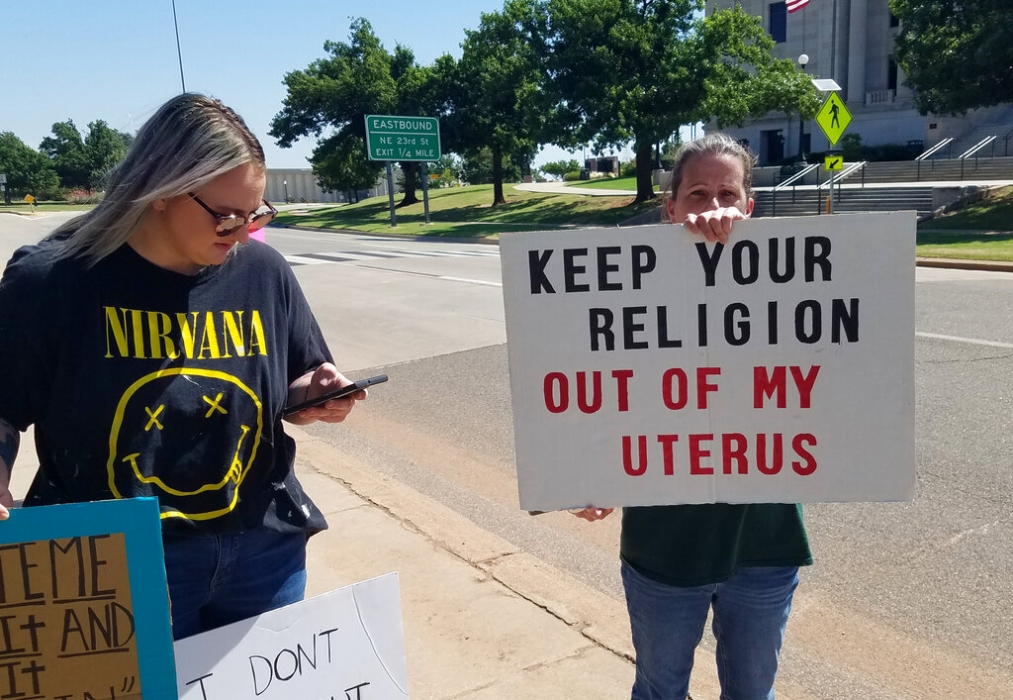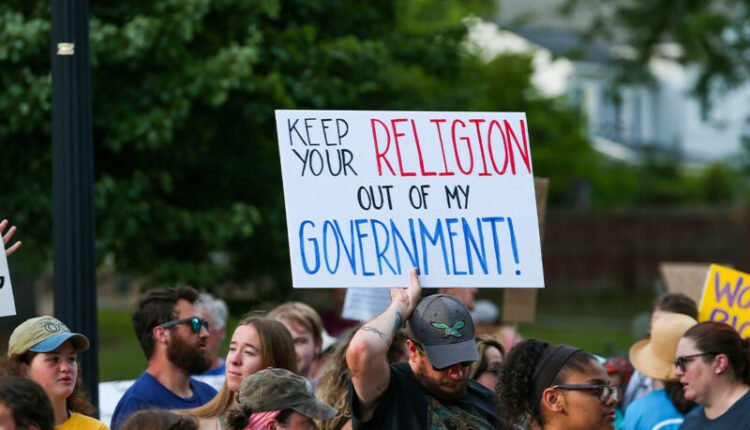The Freedom of Religion Amendment protects individuals’ rights to practice their faith freely. This amendment ensures that the government cannot establish or promote any particular religion.
The Freedom of Religion Amendment is a crucial aspect of the First Amendment to the United States Constitution. It guarantees the right to religious freedom, protecting individuals from government interference in their beliefs and practices. This amendment not only allows for the free exercise of religion but also prohibits the government from favoring or endorsing any particular faith.
The framers of the Constitution believed that religious freedom is essential for a free and democratic society. This amendment has paved the way for religious diversity and tolerance in the United States, allowing individuals to practice their beliefs without fear of persecution or discrimination. The principles outlined in the Freedom of Religion Amendment have been instrumental in upholding the fundamental rights of individuals and promoting a pluralistic society. Understanding the significance of this amendment is crucial in recognizing the importance of religious freedom in modern society.
Historical Overview Of The Amendment
The Freedom of Religion Amendment has a rich historical background, deeply rooted in the origins and significance of religious freedoms. It has evolved significantly over time, shaping the landscape of religious governance and individual rights. The amendment reflects the fundamental values of religious autonomy and expression, serving as a cornerstone of constitutional protections.
Throughout its history, the Amendment has experienced a transformative journey, expanding its scope and impact on civic life. Its legacy continues to influence contemporary debates and legal proceedings, affirming the enduring relevance of religious freedoms in American society.
Protection Of Religious Practices
The Freedom of Religion Amendment provides protection for religious practices by defining and safeguarding them within the legal framework. It ensures that individuals are able to exercise their religious beliefs freely while also respecting the rights of others.
The amendment upholds the principle of religious freedom by offering legal protections for believers to practice their faith without fear of persecution or discrimination. This provides a foundation for fostering a more inclusive and tolerant society that respects diverse religious beliefs.
Constitutional Implications
The Freedom of Religion Amendment holds significant Constitutional Implications, particularly in its interplay with other rights. The Supreme Court has had critical interpretations on the matter, shaping the landscape for religious freedom in the United States. Whether it’s the delicate balance between religious rights and state interests or the complexities of religious expression in public spaces, the amendment has been a focal point of legal discourse.
The depth of these implications has become imperative in navigating the evolving dynamics of religious freedom within the constitutional framework.
Balancing Religious Freedoms
The Freedom of Religion Amendment is a critical aspect of modern society, balancing the rights of individuals to practice their faith with the constraints of societal norms. Conflicts inevitably arise, leading to contentious legal battles and the establishment of crucial precedents. These cases force the legal system to delicately weigh the fundamental right to religious freedom against the need to maintain social order.
Countless legal battles have erupted over the clash between religious freedoms and societal norms. Examples, such as the right to wear religious attire in workplaces or schools, illustrate the complexities surrounding this issue. Each case sets a precedent that influences future rulings, shaping the legal interpretation of religious freedom within the context of modern society.
Issues Of State Intervention
The Freedom of Religion Amendment is a crucial aspect of modern society, addressing issues of State intervention. Government restrictions and rights play a significant role in determining the public vs. private space debates. Individuals often find themselves in a complex web of legislation and constitutional rights when religion clashes with governmental regulations.
This creates a delicate balance between religious freedom and the boundaries of State interference. Understanding these governmental constraints is essential in shaping legally sound and ethically just regulations regarding religious practices. It is imperative to consider the diverse perspectives and complex nuances associated with religious freedoms, particularly when assessing the roles of public and private spaces in the context of religion.
Grassroots Movements
Grassroots Movements: Grassroots movements play a vital role in advocating for the freedom of religion amendment. By raising awareness and support within local communities, individuals and organizations can actively engage in efforts to promote religious freedom. Grassroots initiatives can also focus on lobbying for legislative change, mobilizing individuals to contact elected representatives, and engaging in public demonstrations to promote the cause.
Fighting Discrimination
The Freedom of Religion Amendment is a crucial step in fighting discrimination. Combatting religious bigotry is of utmost importance in creating a fair and inclusive society. Addressing workplace bias is also a key component in ensuring that individuals are not discriminated against based on their religious beliefs. It is essential to protect the rights of individuals to practice their religion without fear of persecution or bias. By advocating for this amendment, we can work towards a more equitable and respectful society for all.
Interfaith Dialogue And Cooperation
The Freedom of Religion Amendment emphasizes the importance of interfaith dialogue and cooperation in today’s diverse society. By encouraging open discussions and mutual respect, we can strive to build bridges among different religions.
This can lead to a greater sense of fostering tolerance and understanding, ultimately promoting harmony and unity. This amendment serves as a reminder to embrace diversity and work towards creating an environment where people of all faiths feel accepted and valued.
Secularism And Pluralism
The Freedom of Religion Amendment is a crucial foundation for secularism and pluralism. It aims to foster political inclusivity by promoting non-discrimination policies and ensuring that individuals are granted their constitutional right to practice their chosen religion without fear of prejudice or bias.
This Amendment acknowledges the significance of upholding the rights of all citizens, irrespective of their religious beliefs, and emphasizes the importance of respecting each individual’s freedom of conscience and worship. By implementing these principles, societies can cultivate an environment of equality, acceptance, and diversity, thereby cultivating a more inclusive and harmonious community.

Credit: firstamendment.mtsu.edu
Legislative Reforms
The Freedom of Religion Amendment is the subject of recent public discourse, with reform efforts seeking to address concerns related to religious freedom and its protection under the law. Proposed amendments or bills have been put forward to address and protect the rights of individuals and organizations to practice and express their religious beliefs without discrimination or restriction.
These reforms aim to strengthen and safeguard the rights of all citizens to freely exercise their religious faith in various aspects of their lives, including employment, education, and public engagement. Legislative actions are being considered to ensure that freedom of religion remains a fundamental and protected right in society.
Societal Shifts
The Freedom of Religion Amendment brings about societal shifts, leading to changing attitudes towards religion. With these shifts come both challenges and opportunities ahead. Individuals now have greater freedom to express their religious beliefs without fear of discrimination or persecution. This change in attitudes is seen as an opportunity for religious communities to flourish and engage more actively in the public sphere.
Meanwhile, the challenges lie in the need to foster understanding and respect for diverse religious practices and beliefs. Additionally, governments and organizations may need to adapt policies to accommodate the newly empowered expressions of faith. Despite these challenges, the amendment signifies a significant step towards greater inclusivity and respect for religious diversity in society.
Human Rights Statement : Ensuring Equality And Dignity
Frequently Asked Questions Of Freedom Of Religion Amendment
What Is The Freedom Of Religion Amendment About?
The Freedom of Religion Amendment grants individuals the right to freely practice their religion without interference.
Why Is The Freedom Of Religion Amendment Important?
The amendment is crucial as it ensures that individuals have the freedom to practice their religion without discrimination or persecution.
How Does The Freedom Of Religion Amendment Protect Individuals?
The amendment safeguards individuals from being denied the right to exercise their religious beliefs and protects them from religious discrimination.
Can The Freedom Of Religion Amendment Be Limited?
Limitations to the amendment can exist if they serve a compelling governmental interest and are carried out in the least restrictive manner.
What Are Some Key Historical Milestones Related To The Freedom Of Religion Amendment?
Historical milestones related to the amendment include important court cases and legislative actions that have shaped its interpretation and enforcement.
Conclusion
In the pursuit of upholding the fundamental rights of individuals, the Freedom of Religion Amendment stands as a critical safeguard. The protection it offers is a testament to the commitment to diversity and inclusivity. With its unwavering support for freedom of belief, this amendment plays a pivotal role in maintaining a free and equitable society.


